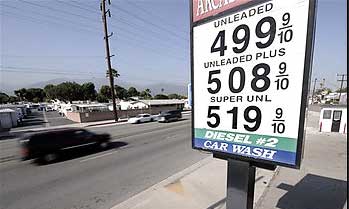First, read this entry about how California charges for registering a car.
I bought my Audi in November. I paid the full registration fee, and this morning, three months later, I received my license plates.
And they expire in 2 months.
As far as I can figure out, in California when one registers a car for the first time — when it is new — that becomes the registration renewal date on that car forever. The original owner of my car registered it for the first time in April, so even though I bought it and registered it in my name in November, the renewal date is in April.
So, why didn’t the registration fee get pro-rated to reflect this shortened registration period? I paid more than $200 to register the car, and will have to pay that again in 2 months.
I finally spoke to someone in Sacramento about this. Turns out that the law does not provide for prorating of registration fees — this means that you never pay for a partial year of registration fees, no matter when you buy or sell a car. You always pay for a full year.
The previous owner of my car bought it in April 2002. In 2006, he paid a full year’s registration and never got a refund for the remaining months on the registration when he sold it. I bought in in November 2006, and paid for a full year even though the registration was already paid from April 2006-2007.
This means that California got 200% of the registration fees for that car in 2006, and they will not give any of that money back no matter how much you beg.
I guess that high income, sales, and property taxes combined with high user fees on almost everything is not enough — they also have to double-charge (read: defraud) citizens as well.
